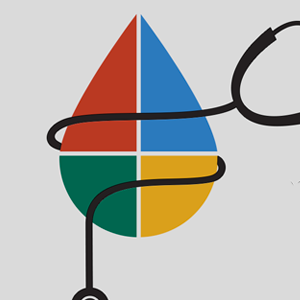Dr. Peter J. D'Adamo
Feb 1st, 2017
Your blood type can influence your cardiovascular system in a variety of ways. There's a strong correlation between blood type and the ability to metabolize fats and oils. Blood type affects the thickness of the blood and reactivity of blood vessel walls. It also affects the body's chemical response to stress. Since stress is a big factor in causing heart disease, these blood type-specific variations can be a vital to your cardiac health.
Heart disease is more common among blood types A and AB although it remains a threat across the board. The main difference is that A’s and AB’s tend to have more noticeable problems with high cholesterol while O’s and B’s tend to have higher triglycerides; usually from the overconsumption of carbohydrates. The higher rate of heart disease in A and AB blood type patients can skew the results of dietary studies, which becomes problematic for the patients with other blood types. If 75% of cardiac patients in a study improve with a low fat diet, most researchers don't worry about the other 25%. They simply recommend the low fat diet for all heart disease patients, catering to the majority but not truly benefitting everyone equally. That's why the conventional wisdom about what constitutes a heart healthy diet differs so much from what I recommend for Blood Types O and B.
Intestinal alkaline phosphatase (AIP) is an enzyme produced in the small intestine that breaks down dietary cholesterol and fats. It is released in response to ingesting proteins and all kinds of fats, especially saturated ones. People with blood types O and B release far higher quantities of AIP than those with blood types A and AB. This means that meals high in animal products are more fully digested in O’s and B’s, and rarely spike blood cholesterol levels.
But a low fat, high carb diet often leads to Metabolic Syndrome for O’s and B’s. Metabolic Syndrome is a clustering of conditions that raises your risk for heart disease and other health problems. These factors include an increase in abdominal fat, high triglycerides, low good cholesterol (HDL), high blood pressure and high blood sugar.










